-
Rachel Morello-FroschProfessor, ESPM and School of Public Health
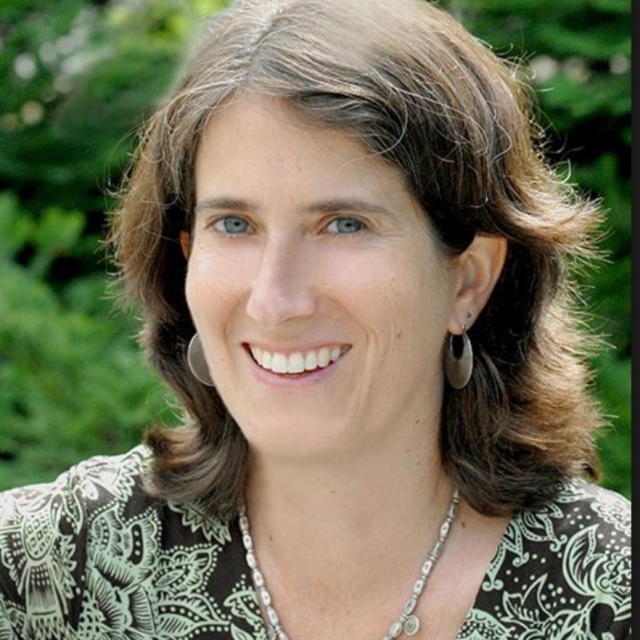
-
Lauren BaehnerResearch Associate
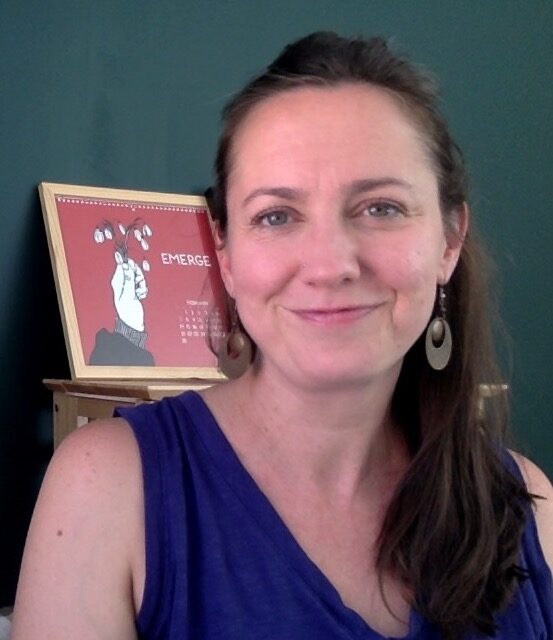
-
Lara CushingAssistant Professor, UCLA Fielding School of Public Health
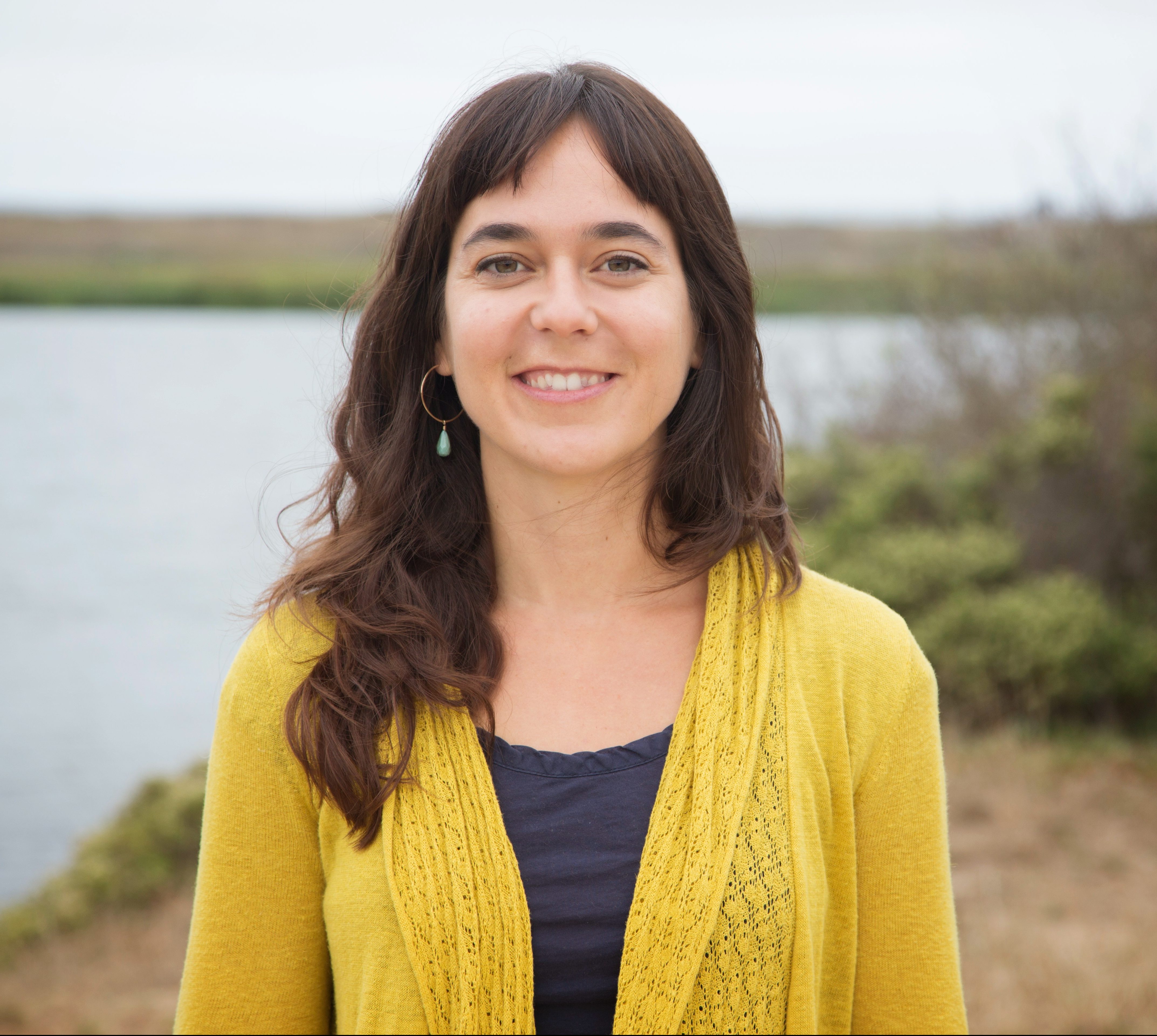
-
Nicholas DepskyPhD Candidate in the Energy and Resources Group
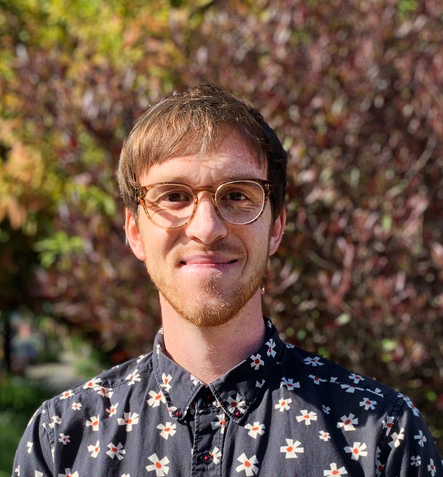
-
Xing GaoPhD Candidate in Epidemiology

-
Sophia GlazerMaster's Student in the School of Public Health
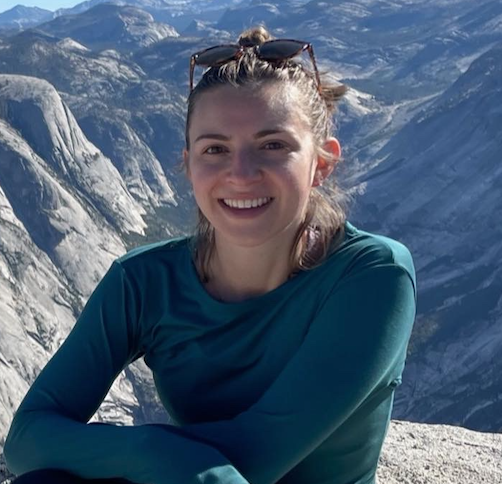
-
Cristina Gomez-VidalChancellor's Postdoctoral Fellow, Department of Public Health, University of California, Merced

-
David J.X. GonzalezPostdoctoral Fellow, ESPM and School of Public Health
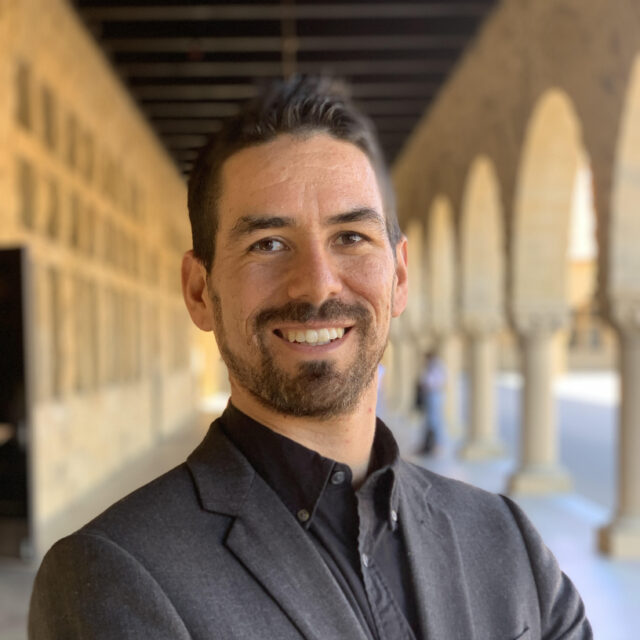
-
Julie GoreckiPhD Candidate, Environmental Science, Policy, Management

-
Yang JuPresidential Postdoctoral Researcher, Department of Urban and Regional Planning, Nanjing University, China

-
Seigi KarasakiPhD Student in Energy and Resources Group

-
Ari LibensonMaster of Science Student in the School of Public Health
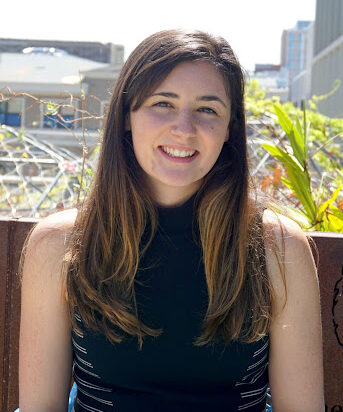
-
Genesis NavarreteMaster's Student in the School of Public Health

-
Clare PacePostdoctoral Scientist
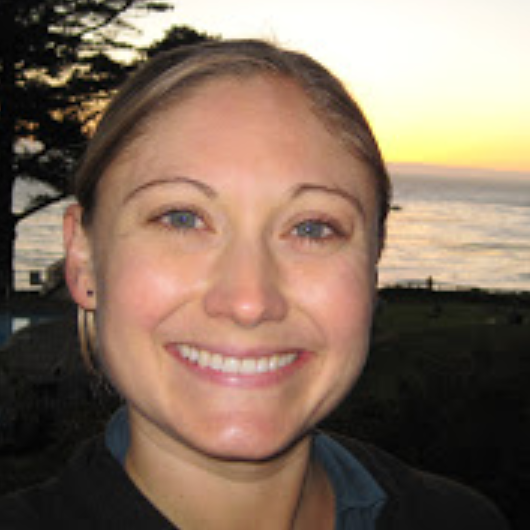
-
Jenny RempelPhD Student in the Energy and Resources Group
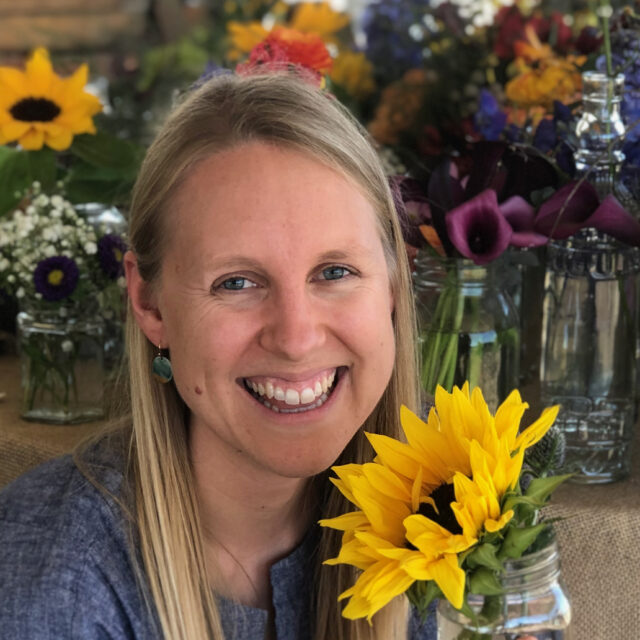
-
Danielle SchellMaster's Student in the School of Public Health

-
Seth ShonkoffVisiting Scholar, Executive Director of PSE Healthy Energy
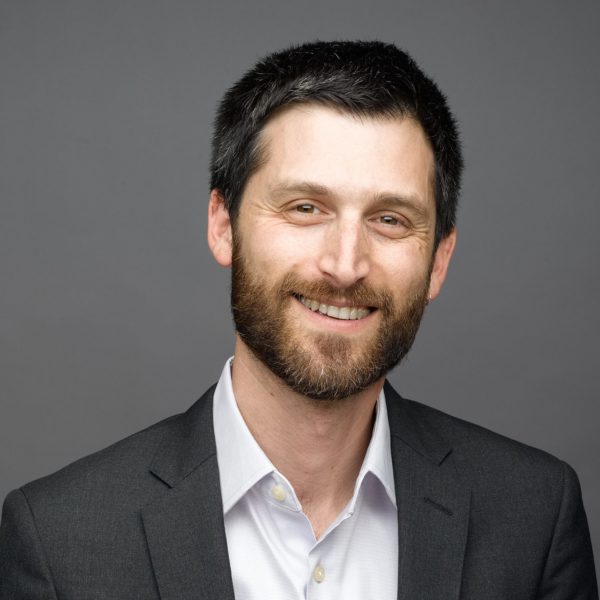
-
Kathy TranVisiting Scholar, Research Scientist at Amgen
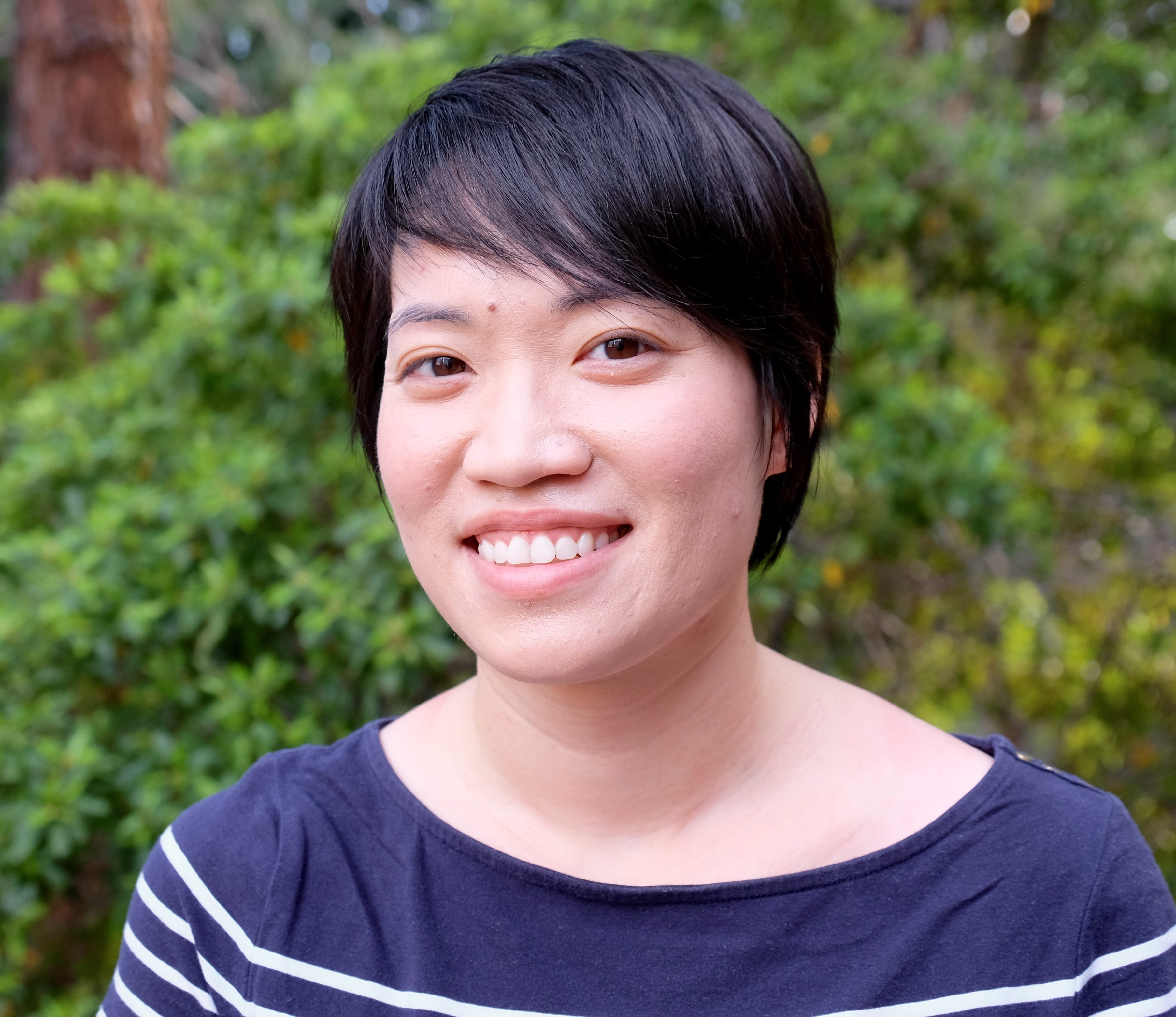
-
Jessica TrowbridgeAssociate Research Scientist at UCSF Program on Reproductive Health and the Environment

-
Julia Rachel VarshavskyAssistant Professor, Northeastern University Department of Health Sciences and Civil and Environmental Engineering

-
Katherine WolfPhD Candidate, ESPM and MS student, Statistics

Rachel Morello-Frosch
Research Description
Download RMorello-Frosch CV – 2021

Lauren Baehner
Education
MPH, Environmental Health Sciences, School of Public Health; University of California, Berkeley
BS, Cell Biology; University of Kansas
BA, Anthropology; University of Kansas
Research Interests
Environmental justice, community-based participatory research, climate change, health equity
Research Description
My work is focused on the Women Workers Biomonitoring Collaborative, and I support other projects in the lab. Prior to joining the S/HE lab, I was a research scientist with the Biomonitoring California program at the California Department of Public Health (CDPH) where I contributed to both community-focused and statewide surveillance biomonitoring studies. There, my work included improving the participant experience and reporting results back to participants at the individual and study level, data analysis on exposure to metals, and I also supported work and analysis on PFASs and environmental phenols. Also at CDPH, I coordinated a mercury exposure reduction program that provided grants to community-based organizations for education on exposure to mercury from fish consumption in the Sacramento San Joaquin River Delta. Additionally, I have experience in community health. I worked as a program evaluator for a community health clinic supporting several grant funded mental health programs and forming an Evaluation Advisory Board with Native and Indigenous families using participatory methods. I also worked with a pay-for-performance program that supported Medi-cal community-based clinics and medical groups in San Francisco to improve system and health outcomes.

Lara Cushing
Click here for more information.
Education
PhD, Energy & Resources; University of California, Berkeley (2016)
MPH, Epidemiology; University of California, Berkeley (2011)
BS, Molecular Environmental Biology; University of California, Berkeley (2003)
Research Interests
Research Description
My research examines social inequalities in environmental exposures and the combined impacts of environmental and social stressors on health. My work has investigated questions of environmental justice in the context of pollution sources and hazardous sites, prenatal exposures to harmful chemicals, and climate change. Current projects include examining the impact of flaring from oil and gas wells on reproductive health outcomes and work to reduce the health risks of unsafe drinking water among low income households reliant on private wells.
Selected Publications
1. Andrade, J., L. Cushing, A. Wesner, “Science Shops and the US Research University: A Path for Community-Engaged Scholarship and Disruption of the Power Dynamics of Knowledge Production” In: Education for Citizenship and Social Justice, T.D. Mitchell and K.M. Soria (eds.), Palgrave Macmillan, Chan, 2018, ISBN 978-3-319-62970-4, pgs. 149-165
2. Casey, J.A., P. James, L. Cushing, B.M. Jesdale, R. Morello-Frosch, “Race, Ethnicity, Income Concentration and 10-Year Change in Urban Greenness in the United States” International Journal of Environmental Research and Public Health (2017) 14 (12) 1546-1561, doi:10.3390/ijerph14121546
3. Morello-Frosch, R., L. Cushing, B.M. Jesdale, J. Schwartz, W. Guo, T. Guo, M. Wang, S. Harwani, S.S. Petropoulou, W. Duong, J.S. Park, M. Petreas, R. Gajek, J. Alvaran, J. She, R. Das and T.J. Woodruff, “Environmental Chemicals in an Urban Population of Pregnant Women and their Newborns from San Francisco” Environmental Science & Technology (2016) 50 (22): 12464–12472, doi: 10.1021/acs.est.6b03492
4. Cushing, L., J. Faust, L. August, R. Cendak, W. Wieland and G. Alexeeff, “Racial/ethnic disparities in cumulative environmental health impacts in California: evidence from a state-wide environmental justice screening tool (CalEnviroScreen 1.1)” American Journal of Public Health (2015) 105(11): 2341-2348, doi: 10.2105/AJPH.2015.302643
5. Cushing, L., R. Morello-Frosch, M. Wander and M. Pastor, “The Haves, the Have-nots, and the Health of Everyone: The Relationship between Social Inequality and Environmental Quality”, Annual Review of Public Health (2015), 18(36): 193-209, doi: 10.1146/annurev-publhealth-031914-122646
6. Jesdale, B., R. Morello-Frosch and L. Cushing, “The Racial/Ethnic Distribution of Heat Risk–Related Land Cover in Relation to Residential Segregation”, Environmental Health Perspectives (2013), 121(7):811-817, doi:10.1289/ehp.1205919
Honors and Awards
Switzer Environmental Leadership Fellowship; Robert & Patricia Switzer Foundation
Chancellor’s Public Fellow; University of California, Berkeley
Science to Achieve Results (STAR) Fellowship; U.S. Environmental Protection Agency
Recent Teaching
HED 655 Environmental Health; San Francisco State University

Nicholas Depsky
Please click here for more information
Education
Research Interests
Climate change, human migration & displacement, climate modeling, governing migration, environmental justice, federal climate policy, geospatial modeling techniques
Research Description
Nick’s research focuses on understanding the ways in which climate hazards drive human migration and displacement, and how these dynamics may evolve in coming decades. Specific focus areas include Central American droughts, Caribbean tropical cyclones and global sea level rise. He utilizes quantitative modeling and geospatial mapping techniques and is also interested in identifying governance and policy priorities surrounding these issues. Issues of environmental/climate justice also play a key role in his research motivation and framing, and he continues to be involved in environmental justice related projects at both the state and federal levels.
Selected Publications
Depsky, N. and Pons, D., 2020. Meteorological droughts are projected to worsen in Central America’s Dry Corridor throughout the 21st century. Environmental Research Letters, 16(1), p.014001.
Cash, A., Chapple, K., Depsky, N., Elias, R. R., Krnjaic, M., Manji, S., & Montano, H. (2020). Climate Change and Displacement in the U.S. – A Review of the Literature, (April), 70.
Casey, J., Cushing, L., Depsky, N., Morello-Frosch, R., 2021. Climate justice and California’s methane superemitters: An environmental equity assessment of community proximity and exposure intensity. Environmental Science and Technology
Honors and Awards
Recent Teaching

Xing Gao
Education
MPH in Epidemiology/Biostatistics, UC Berkeley
BA in Geography and International Studies, Macalester College
Research Interests
Neighborhood environment, structural racism, racial/ethnic health inequities
Research Description
My research projects examine structural racism. neighborhood context, and racial/ethnic inequities in maternal and cardiovascular health across the lifecourse.
Selected Publications
Honors and Awards
Recent Teaching
Epidemiologic Methods I & II, Social Epidemiology, UC Berkeley

Sophia Glazer
Master’s in Public Health, Environmental Health Sciences; University of California Berkeley, Expected 2023 BS, Public Health; Tulane University School of Public Health and Tropical MedicineEducation
Research Interests
My research focuses on women’s occupational health and environmental exposures. For my Master’s Thesis, I am working with the Women Workers Biomonitoring Collaborative to look at polycyclic aromatic hydrocarbon (PAH) metabolite measurements in a cohort of female firefighters from the San Francisco Fire Department. We are interested to see how potentially carcinogenic PAHs associated with fire interact in the body after a fire-suppression event over time. Our goal is to improve the occupational health of this community.Research Description
Recent Teaching

Cristina Gomez-Vidal
Education
MSW, School of Social Welfare, UC Berkeley
BA, Interdisciplinary Studies Field, UC Berkeley
Minor Public Policy
Research Interests
Political government structures and governance, health equity, structurally disadvantaged communities, disadvantaged unincorporated communities facing environmental injustice, climate change, and health inequities, GIS and mixed methods for small populations.
Research Description
My research examines how U.S. political structures and governance render low-income communities of color structurally vulnerable to adverse health, environmental, and social outcomes. Currently, I am examining how the absence of a local government structure in rural disadvantaged unincorporated communities that rely solely on distal county government and electorate for decision-making impacts the distribution and quality of social determinants of health and health outcomes. Many of these communities are on the front lines of climate change and environmental injustice. However, little is understood on how their political structure may make unincorporated communities vulnerable to adverse health events. I am using mixed methods, including GIS, to conduct research studies in the San Joaquin Valley and broadly in California and Texas. Additionally, I am interested in identifying productive methods for understanding the challenges of small hard to count populations. My research interests are grounded in over a decade of work alongside rural communities of color in the San Joaquin Valley, addressing racial and spatial health inequities associated with the built and social environment while working at a federally qualified health care center and non-profit organizations. My work is inspired by the ingenuity, tireless work, and situated knowledge of residents throughout the Valley and in particular Madera Country.
Selected Publications
Gomez-Vidal, Cristina, and Anu Manchikanti Gomez. “Invisible and unequal: Unincorporated community status as a structural determinant of health.” Social Science & Medicine 285 (2021): 114292.
Honors and Awards
RWJF Health Policy Research Scholar
2021-2022 County Health Rankings & Roadmaps, Research Grants
University of Wisconsin Population Health Institute
Measuring County Incorporation Status for Examination of Racial and Spatial Health Inequities
Role: Co-Investigator
2020-2021 Robert Wood Johnson Foundation Health Policy Research Dissertation Grant
The Legal Reproduction of Infant Health Inequities in Unincorporated Communities
Role: Principal Investigator
2015-2016 Equity, Inclusion, and Diversity Grant, University of California, Berkeley
Underrepresented Student Research Ambassador Program
Role: Co-Project Lead

David J.X. Gonzalez
View website here: https://djxgonzalez.github.io/
Education
Research Interests
Environmental epidemiology, perinatal epidemiology, health disparities, applied econometrics, ambient air quality, global health, environmental science, environmental justice
Research Description
David studies environmental health sciences with a focus on perinatal health, health disparities, and exposures to air pollution. He also studies mercury pollution and community health in the Peruvian Amazon. In his research he applies interdisciplinary methods from epidemiology, econometrics, and environmental science, and he conducts field work and population-level studies in California and Peru.
Selected Publications
Santana, Francisca N., David J.X. Gonzalez, and Gabrielle Wong-Parodi (2021). Psychological factors and social processes influencing wildfire smoke protective behavior: Insights from a case study in Northern California. Climate Risk Management. (Paper, Press Release)
Gonzalez, David J.X., Allison R. Sherris, Wei Yang, David K. Stevenson, Amy M. Padula, Michael Baiocchi, Marshall Burke, Mark R. Cullen, and Gary M. Shaw (2020). Oil and gas production and spontaneous preterm birth in the San Joaquin Valley, CA: A case-control study. Environmental Epidemiology. (Paper, Press Release)
Gonzalez, David J.X., Aubrey Arain, and Luis E. Fernandez (2019). Mercury exposure, risk factors, and perceptions among women of childbearing age in an artisanal gold mining region of the Peruvian Amazon. Environmental Research. (Paper)
Honors and Awards
Recent Teaching

Julie Gorecki
Education
PhD Candidate, Society and Environment division of Environmental Science and Policy Management; University of California, Berkeley
Masters, École des Hautes Études en Sciences Sociales (EHESS)
BA, Joint Specialist in Political Science and Philosophy, Minor in History; University of Toronto
Research Interests
Climate Change, Environmental Impact, Feminist Theory, Women and Gender Studies, Ecofeminism, Postcolonial Feminism, Post Colonial Studies, Queer Ecologies, Indigenous Feminism, Critical Theory, Feminist Economics, Environmental Studies, Environmental Philosophy, Qualitative Methodologies
Research Description
Scholars and international organizations have shown that climate change disproportionately affects women. Indigenous women and women of the Global South are particularly impacted. Women’s traditional labor roles and their lack of economic and socio-political power are proving to be non-conducive to climate change adaptation. Affected women have organized the “Women for Climate Justice” contingent — an international interface of women’s groups, collectives, initiatives and organizations — positioned at the forefront of the global climate justice movement. They look to remedy the disproportionate effects of climate change on them, while contending that women’s local work skills and knowledge can help mitigate climate change. My research investigates the nexus between climate change and gender. Specifically, I explore the burdens and solutions of the Women for Climate Justice contingent to better understand the global pattern of gendered vulnerability to climate change, as well as how it sheds light on feminist theories that explain the wider systemic oppression of women.
The theoretical component of my research is embedded in ecological feminist theories that have long contended that environmental and gender exploitation are linked. They have affirmed that capitalism’s founding ideology of continuous growth—materialized as the infinite extraction of finite natural resources—has been necessitated by the coincident subordination of women, minorities, and nature, and is based on the exploitation of women’s, power, bodies and labor.
Selected Publications
1. “‘Mother Earth’ Ethic and the Rise of Capitalism in North America,” Genesis : Rivista della Societa Italiana delle Stroriche, international and mutilingual academic journal
Honors and Awards
Arnold Schultz Fellowship (2017)
Highest Honors, Masters Degree, École des Hautes Études en Sciences Sociales (EHESS) (2013)
Recent Teaching
Teacher’s Assistant, GWS 126, Film, Feminism and the Avant-Garde; UC Berkeley
Teacher’s Assistant, GWS 100AC, Women in American Cultures: Settler Colonialism, Wilderness, Women/Gender, and the American West; UC Berkeley
Graduate Student Instructor, ESPM 161, Environment Philosophy and Ethics; UC Berkeley
Graduate Student Instructor, ESPM 167 Environmental Health and Development; UC Berkeley
Graduate Student Researcher, The Fate of Nature in the Anthropocene : The Humanities and the Environmental Turn; Townsend Center Seminar
Instructor, “Introduction to Feminist Theory and Gender Studies”; Paris Diderot University (Paris 7)

Yang Ju
View website here: https://yangjugeospatial.wordpress.com/
Education
Research Interests
Built environment, environmental justice, environmental health, urban informatics
Research Description
Given rapid global trends in urbanization, as well as current and future environmental and societal challenges under climate change, solutions to a sustainable and socially just society lie in our cities. My goal is to provide scientific evidence to support more informed decision-making that aids disadvantaged populations and supports sustainable development in our communities, using GIS, remote sensing, and other analytical methods. My research questions center in the interdisciplinary fields of urbanization, environmental hazards and climate change, environmental health, environmental justice, and policy evaluation. I use various data-driven approaches, such as GIS, remote sensing, econometrics, machine learning, process-based models, and spatial statistics, to answer my research questions.
Selected Publications
- Ju, Y., Moran, M., Wang, X., Avila-Palencia, I., Cortinez-O’Ryan, A., Moore, K., Slovic, A. D., Sarmiento, O. L., Gouveia, N., Caiaffa, W. T., Aguilar, G., Sales, D. M., Pina, M. de F. R. P. de, Coelho, D. M., & Dronova, I. (2021). Latin American cities with higher socioeconomic status are greening from a lower baseline: Evidence from the SALURBAL project. Environmental Research Letters. https://doi.org/10.1088/1748-
9326/ac2a63 - Cunha, M. da C. M., Ju, Y., Morais, M. H. F., Dronova, I., Ribeiro, S. P., Bruhn, F. R. P., Lima, L. L., Sales, D. M., Schultes, O. L., Rodriguez, D. A., & Caiaffa, W. T. (2021). Disentangling associations between vegetation greenness and dengue in a Latin American city: Findings and challenges. Landscape and Urban Planning, 216, 104255. https://doi.org/10.1016/j.
landurbplan.2021.104255 - Ju, Y., Cushing, L. J., & Morello-Frosch, R. (2020). An equity analysis of clean vehicle rebate programs in California. Climatic Change, 162(4), 2087–2105. https://doi.org/10.1007/
s10584-020-02836-w - Ju, Y., Lindbergh, S., He, Y., & Radke, J. D. (2019). Climate-related uncertainties in urban exposure to sea level rise and storm surge flooding: A multi-temporal and multi-scenario analysis. Cities, 92, 230–246. https://doi.org/10.1016/j.
cities.2019.04.002
Honors and Awards
- Yuxiu Young Scholars Program (postdoc research fellowship), 2022-2025, Nanjing University, China
Recent Teaching
- University of California, Berkeley
-
- Lead TA, Geographic Information Systems Fall 2016
- TA, Geographic Information Systems Fall 2014, 2015
- TA, GIS and Environmental Spatial Data Analysis/Spatial Statistics Spring 2016
- TA, Quantitative Methods in Environmental Planning Spring 2015

Seigi Karasaki
Education
Research Interests
Drinking water access, environmental justice, GIS, community-engaged scholarship
Research Description
My research focus is on the intersection of drinking water access, social justice, institutional capacity, and individual agency. I’m primarily interested in weaving together historical and current race- and class-driven disparities in water access, using a combination of community-based research methodologies and “big data” analyses.
Honors and Awards
Recent Teaching

Ari Libenson
Master of Science, Environmental Health Sciences; University of California, Berkeley, Expected 2023 BS, Environmental Sciences; The University of VermontEducation
Environmental justice, health equity, equitable drinking water access, water quality, chemical exposures, community-based participatory research, geographical information systems (GIS)Research Interests
I am interested in studying disparities in access to clean drinking water among California communities and identifying the underlying mechanisms driving these inequities. In collaboration with the Water Equity Science Shop, I have been working to update their Drinking Water Tool (DWT) with new map layers displaying groundwater threats (i.e. pesticide use intensity, PFAs, CAFOs, superfund sites, etc.). The DWT informs various stakeholders and the public of potential water quality and access issues within California. In an extension of this work, I am investigating whether pesticide use is unevenly distributed with respect to the sociodemographics of domestic well reliant communities. My research leverages publicly available datasets, geographic information systems (GIS), and community/stakeholder feedback.Research Description

Genesis Navarrete
Education
Research Interests
Research Description
Honors and Awards
Recent Teaching

Clare Pace
Education
Research Interests
Environmental toxicology, environmental justice, water quality, cardiovascular toxicology, mitochondrial dysfunction
Research Description
My research focuses on environmental justice and the health effects of environmental contaminants. I am particularly interested in addressing exposure to contaminated groundwater among vulnerable populations. I also conduct research on cardiovascular, metabolic, and mitochondrial dysfunction associated with arsenic exposure. I am currently working on a project that aims to reduce the risk of exposure to contaminated drinking water in California through community involvement, education, and environmental policy.
Selected Publications
1. Pace C., Banerjee T.D., Welch B., Khalili R., Dagda R.K., Angermann J. (2016). Monomethylarsonous Acid, But not Inorganic Arsenic, is a Mitochondria Specific Toxicant in Vascular Smooth Muscle Cells. Toxicology in Vitro. 35:188-201. doi: 10.1016/j.tiv.2016.06.006
2. Pace C., Dagda R.K., Angermann J. (2017). Antioxidants Protect Against Arsenic Induced Mitochondrial Cardio-toxicity. Toxics. 5, 38: doi:10.3390/toxics5040038
3. Pace C., Smith-Gagen J., Angermann J. (2018). Arsenic Methylation Capacity and Metabolic Syndrome in the 2013-2014 U.S. National Health and Nutrition Examination Survey (NHANES). Int. J. Environ. Res. Public Health. 15, 1: 168; doi:10.3390/ijerph15010168
Honors and Awards
Suma Cum Laude, University of Nevada, Reno (2017)
Suma Cum Laude, University of Nevada, Reno (2014)
M.P.H. Academic Achievement Award, University of Nevada, Reno (2014)
Graduate Student Association, University of Nevada Reno, Student Scholarship (2014)
Nevada Public Health Association Scholarship Winner (2013)
Miles Public Health Scholarship Award, University of Nevada Reno (2011)
Valedictorian Candidate, Sierra Nevada College (2011)
Suma Cum Laude, Sierra Nevada College (2011)
Undergraduate Research Prize Recipient, 2nd place, Sierra Nevada College (2011)
Recent Teaching
Letter of Appointment. Biostatistics; University of Nevada, Reno (Spring 2018)
Adjunct Faculty. Biology; Sierra Nevada College, Incline Village, NV (Fall 2016)

Jenny Rempel
Education
Research Interests
Environmental justice, water access, water governance, geospatial analysis, political ecology, community-engaged scholarship
Research Description
I use mixed methods approaches to improve our understanding of the patterns and drivers of inequitable water access in efforts to provide organizers, advocates, and policymakers with the information needed to strengthen community-based solutions to longstanding water injustices. In recent research, I have used geospatial modeling and archival analysis to examine how land ownership patterns affect groundwater access and well drilling behavior, and I have characterized violations of the human right to water in rural and incarcerated communities. With the Water Equity Science Shop, I am creating tools to make drinking water data more accessible to policymakers and to community members reliant on domestic groundwater wells in California.
Selected Publications
Belfer, E. and Rempel, J. (2020). “Surfacing Overlying Rights: Assessing Transitions in Overlying Rights to California’s Groundwater Basins.” Master’s Thesis. Energy & Resources Group, University of California, Berkeley.
Honors and Awards
Recent Teaching

Danielle Schell
Education
Master’s in Public Health, Health and Social Behavior; University of California, Berkeley, Expected 2023
BA, Social Anthropology; Augustana College
Research Interests
Health equity, Social bonding and Social support, adaptive coping, kinship, long-term relationships, health autonomy, trauma healing and mental health, plant-based medicine, community-based participatory research
Research Description
My research investigates how communal experiences of healing impact health and coping, specifically how shared experiences with plant-medicine affects relationships and overall health of the individual and community. In my previous research I have worked with maternal experiences within prenatal and birthing experiences among African American women and birth outcomes in the Pacific Northwest United States. I am excited to expand my knowledge of collaborative community-driven research methods and contribute to the awesome work being done already in the S/HE lab.

Seth Shonkoff
View website here.
Education
PhD, Environmental Science, Policy and Management; University of California, Berkeley
MPH, Epidemiology, School of Public Health; University of California, Berkeley
BA, Environmental Studies; Skidmore College
Research Interests
Research Description
Selected Publications
1. Czolowski E, Santoro RL, Srebotnjak T, Shonkoff SBC. 2017. Towards Consistent Methodology to Quantify Populations in Proximity to Oil and Gas Development: A National Spatial Analysis and Review. Environmental Health Perspectives. Online version available at: https://ehp.niehs.nih.gov/EHP1535.
2. DiGiulio DC, Shonkoff SBC, Jackson RB. Submitted. The Need to Protect Fresh and Brackish Groundwater Resources During Unconventional Oil and Gas Development.
3. DiGiulio D, Shonkoff SBC. 2017. Is Reuse of Produced Water Safe? First, Let’s Find out What’s in It. August 2017. EM Magazine, a copyrighted publication of the Air & Waste Management Association.
4. Stringfellow WT, Camarillo MK, Domen JK, Shonkoff SBC. 2017. Comparison of Chemical-Use Between Hydraulic Fracturing, Acidizing, and Routine Oil and Gas Development. PLoS ONE. 12(4): e0175344. Available at: https://doi.org/10.1371/journal.pone.0175344
5. Shonkoff SBC, Hays J, Hill LA, Krieger E, Hughes D, Hosang N, Law A. 2016. Trump: Renewables for Self-Sufficiency. Nature. 540:341. Available at: http://www.nature.com/nature/journal/v540/n7633/pdf/540341b.pdf
6. Hays J, McCawley M, Shonkoff SBC. 2016. Public Health Implications of Environmental Noise Associated with Unconventional Oil and Gas Development. Science of The Total Environment. Available at: http://www.sciencedirect.com/science/article/pii/S0048969716325724.
7. Krieger E, Casey J, Shonkoff SBC. 2016. A framework for siting and dispatch of emerging energy resources to realize environmental and health benefits: Case study on peaker power plant displacement. Energy Policy. 96:302-313. Available at: http://www.sciencedirect.com/science/article/pii/S0301421516302798.
8. Hays J, Shonkoff SBC. 2016. Toward an Understanding of the Environmental and Public
Health Impacts of Unconventional Natural Gas Development: A Categorical Assessment of the Peer-Reviewed Scientific Literature, 2009-2015. PLoS ONE. 11(4): e0154164. Available at: https://doi.org/10.1371/journal.pone.0154164.
9. Hays J, Finkel M, Depledge M, Law A, Shonkoff SBC. 2015. Considerations for the
development of shale gas in the United Kingdom. Science of The Total Environment. 512-513:
36-42. Available at: http://www.sciencedirect.com/science/article/pii/S0048969715000078.
10. Ingraffea A, Wells M, Santoro R, Shonkoff SBC. 2014. Assessment and Risk Analysis of Casing and Cement Impairment in Oil and Gas Wells in Pennsylvania: 2000-2012. Proceedings of the National Academy of Science. 111 (30): 10955-10960. Available at: http://www.pnas.org/content/111/30/10955.abstract.
11. Shonkoff SB, Hays, J, Finkel, MF. 2014. The Public Health Dimensions of Shale Gas Development. Environmental Health Perspectives. 122 (8): 787-795. http://dx.doi.org/10.1289/ehp.1307866.
12. Law A, Hays J, Shonkoff SB, Finkel, ML. 2014. Re: Public Health England’s reply to Editorial on
its Draft Report on Shale Gas Extraction. BMJ. 348:g3280.
13. Law A, Hays J, Shonkoff SB, Finkel, ML. 2014. Public Health England’s Draft Report on Shale Gas Extraction: Mistaking Best Practices for Actual Practices. BMJ. 348:g2728.
14. Shonkoff SB. 2013. Shale gas and Tight Oil Development: Look Before We Leap. Global Energy Affairs. Available at: http://globalenergyinitiative.org/insights/103-shale-gas-tight- oil-development.html
15. Shonkoff SB, Morello-Frosch R, Pastor M, Sadd J. 2011. Environmental Health and Equity Implications of Climate Change and Mitigation Policies in California: A Review of the Literature. Climatic Change. Volume 109. Supp. 1.
16. Smith KR, Jerrett M, Anderson HR, Burnett RT, Stone V, Derwent R, Atkinson RW, Cohen A, Shonkoff SB, Krewski D, Pope CA, 3rd, Thun MJ, Thurston G. 2009. Public Health Benefits of Strategies to Reduce Greenhouse-Gas Emissions: Health Implications of Short-Lived Greenhouse Pollutants. The Lancet. 374(9707): 2091-2103.
17. Shonkoff SB, Morello-Frosch R, Pastor M, Sadd J. 2009. Minding the Climate Gap: Implications of Environmental Health Inequities for Mitigation Policies in California. Environmental Justice 2(4): 173-177.
18. Spencer DF, Ksander GG, Donovan MJ, Liow PS, Chan WK, Greenfield BK, Shonkoff SB,
Andrew S. 2006. Evaluation of Water Hyacinth Survival and Growth in the Sacramento Delta, California, Following Cutting. The Journal of Plant Management. 44: 50-60.
Honors and Awards
Pioneer Under 40 in Environmental Public Health; Collaborative on Health and the Environment (CHE)
Emerging Leader, Emerging Leaders Fund; The Claneil Foundation
Outstanding Graduate Student Instructor Award; University of California, Berkeley
Recent Teaching
Environmental Science Senior Research Seminar; University of California, Berkeley (Fall 2010 – Spring 2012)
Sociology of Natural Resources; University of California, Berkeley (Fall 2009)
Environmental Health and Development; University of California, Berkeley (Fall 2008)

Kathy Tran
Education
PhD, Environmental Health Sciences; University of California, Berkeley
MPH, Global Environmental Health, Rollins School of Public Health (RSPH); Emory University
BS, Molecular, Cell and Developmental Biology; University of California, Los Angeles
Research Interests
Research Description
Selected Publications
1. White AC, Khuu JK, Dang CY, Hu J, Tran K, Liu A, Gomez S, Zhang Z, YI R, Scumpia P, Grigorian M, and Lowry WE. Stem cell quiescence acts as a tumor suppressor mechanism in hair follicle initiated squamous tumors. Nature Cell Biology. 2014 Jan;16(1):99-107. PubMed PMID: 24335650; PubMed Central PMCID: PMC3874399.
2. Tran K, Azhar G, Nair R, Jaiswal A, Knowlton K, Mavalankar D, Hess J. A cross-sectional, randomized sample survey of household vulnerability to extreme heat among urban slum dwellers in Ahmedabad, Int J Environ Res Public Health. 2013 Jun 18;10(6):2515-43. PubMed PMID: 23778061; PubMed Central PMCID: PMC3717750.
3. White AC, Tran K, Khuu J, Dang C, Cui Y, Binder SW, Lowry WE. Defining the origins of Ras/p53-mediated squamous cell carcinoma. Proc Natl Acad Sci U S A. 2011 May 3;108(18):7425-30. PubMed PMID: 21502519; PubMed Central PMCID: PMC3088581.
Honors and Awards
Mentored Research Award Fellowship (2017-2018)
EPA-NEJAC Youth Perspectives Climate Change Workgroup (2016-2018)
SAGE-IGERT Fellowship, UC Berkeley (2016-2018)
Tenbosch Graduate Fellowship, UC Berkeley (2014-2015)
NCAR Biannual Colloquium on Climate and Health Scholarship (July 2013)
American Public Health Association Environment Section Student Scholarship Award (September 2012)
Public Health Traineeship, Emory University (November 2011)
Recent Teaching

Jessica Trowbridge
Please click here for more information.
Education
PhD, Environmental Health Sciences; University of California, Berkeley
MPH, Environmental Health Sciences, School of Public Health; University of California, Berkeley
BS, Molecular Environmental Biology; University of California, Berkeley
AA; Merritt Community College
Research Interests
Research Description
Honors and Awards
Switzer Environmental Leadership Fellowship; Robert & Patricia Switzer Foundation (2019)
Targeted Research Training Grant; National Institute of Occupational Safety and Health (2015-2020)
UC Berkeley SPH Alumni Association, Dr. Julia Quint Work and Environment Fellowship (2016-2020)
Hispanic Scholarship Fund Scholarship (2015-2016)
American Industrial Hygiene Foundation Scholarship (2017)
Biology Scholars Program Scholar; University of California, Berkeley (2001-2003)

Julia Rachel Varshavsky
Click here for more information
Research Description

Katherine Wolf
Education
PhD Student, Environmental Science, Policy, and Management; University of California, Berkeley
MS Student, Statistics; University of California, Berkeley
MESc, Yale School of Forestry and Environmental Studies; Yale University
MPH, Environmental Health Sciences, Yale School of Public Health; Yale University
BA, Music; Vassar College
Research Interests
Research Description
My research investigates disparities in exposures to environmental hazards, particularly air pollution, and associated human health outcomes. Some of my prior work looks at associations between airborne fine particulate matter (PM2.5) components and African American racial residential segregation in the United States as well as the sociodemographic context of oil and gas disposal well locations in the United States. I am particularly interested in collaborative research models in which scientists take direction from and explicitly share power with members of communities seeking relief from exposure to environmental hazards.
Selected Publications
1. Baccarelli AA, Zheng Y, Zhang X, Chang D, Liu L, Wolf KR, Zhang Z, McCracken JP, Díaz A, Bertazzi PA, Schwartz J, Wang S, Kang CM, Koutrakis P, Hou L. Air pollution exposure and lung function in highly exposed subjects in Beijing, China: a repeated-measure study. Particle and Fibre Toxicology. 2014 October;11:51. doi: 10.1186/s12989-014-0051-7. PMID: 25272992. PMCID: PMC4192276.
2. Hou L, Barupal J, Zhang W, Zheng Y, Liu L, Zhang X, Dou C, McCracken JP, Díaz A, Motta V, Wolf KR, Bertazzi PA, Schwartz JD, Wang S, Baccarelli AA. Particulate air pollution exposure and expression of viral and human microRNAs in blood. Environmental Health Perspectives. 2016 March;124:344-350. doi: 10.1289/ehp.1408519. PMID: 26068961. PMCID: PMC4786978.
Honors and Awards
Air and Waste Management Association Award
Berkeley Fellowship for Graduate Study
Yale Jan A. J. Stolwijk Fellowship in Environmental Epidemiology
Yale Climate Change and Health Initiative Summer Fellowship
Yale Hixon Center for Urban Ecology Fellowship
Yale Jubitz Family Endowment for Research Internships
Yale Institute for Biospheric Studies Master’s Research Award
Vassar Ford Scholar Award
Recent Teaching
Teaching Fellow, Principles of Epidemiology I (CDE 508a); Yale School of Public Health (Fall 2016)